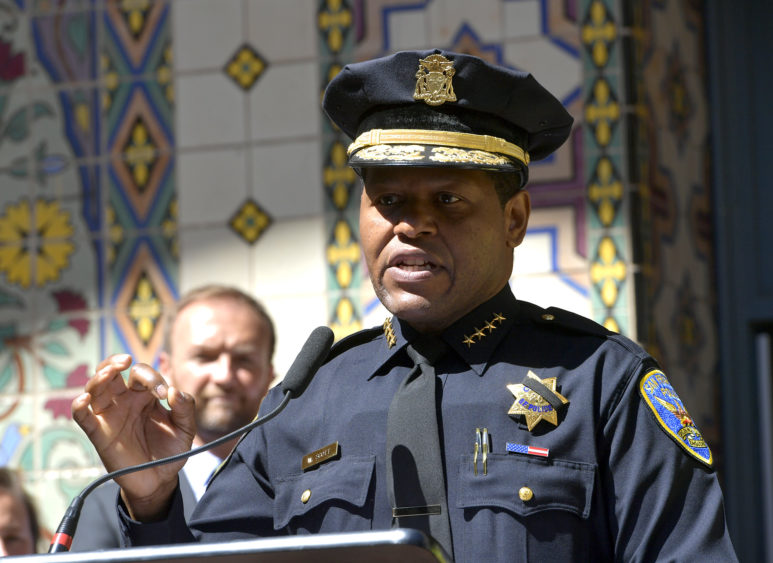San Francisco Mayor London Breed presented her two-year budget that seeks to close a $1.5 billion deficit during a period of economic uncertainty caused by the Covid-19 pandemic.
The budget proposal Breed announced on Friday of 13.7 billion for the 2020-2021 fiscal year and $12.6 billion for the 2021-2022 fiscal year, closes the deficit without having to lay off workers or having severe impacts to city services.
Breed said in her public announcement of her proposed budget:
“We had a lot of plans. What we didn’t have plans for was the coronavirus, but it certainly had plans for us. So here we are today in a very different San Francisco with small businesses closing and schools struggling to bring back to the classrooms.”
The mayor’s budget includes $842 million in savings from city departments over the next two years and relies on $340 million in reserve funding to help to close the $1.5 billion deficit.
Breed is also relying on the assumption that city labor unions will agree to delaying raises over the next two years, which would save The City $270 million.
Expressing hope that labor union leaders with work with city officials, Breed said:
“So far, we are having good conversations with the firefighters and the police officers on delaying their raises and I am hopeful other unions will do the same. I don’t think this is too much to ask. Our entire city is suffering now and we all need to do our part to share in that sacrifice.”

If labor unions do not agree with the pay increase delay, the mayor warmed:
“We will be forced to lay people off. We will be forced to cut city services. We don’t want to see those unemployment numbers go up because we are forced into layoffs. That’s not what I want. It’s not what anyone wants.”
The mayor’s budget also assumes the passage of a business reform tax measure that voters will decide on in November. The tax structure changes would add $300 million into the general fund.
Breed’s budget will continue to fund the Covid-19 response with $93 million from the general fund.
Following up on a pledge made by Breed and Supervisor Shamann Walton, the mayor’s budget diverts $120 million from law enforcement to pay for supportive programs in the Black community.
Breed proposes 60 percent of the funding would go towards programs to improve mental health, wellness and homelessness. Another 35 percent of the funding would be allocated for education, youth development and economic opportunities.
Members of the Black community initially weighed in to identify investment priorities through the Human Rights Commissions, which released a working draft report Monday.

Police Chief Bill Scott said in a statement on Twitter:
“We knew that there would be pain and sacrifice associated with these budget cuts, but we also know they’re necessary to fulfill the promise of Mayor Breed’s and Sup. Walton’s reinvestment initiative to support racial equality.”
The rest of the $120 million in Breed’s proposal would go toward efforts to divert non-emergency 911 calls away from law enforcement and to other city agencies better equipped to help people who may be struggling with mental illness, for example.
Breed said:
“It’s not fair to ask our officers to do the work of mental health professionals and it’s not effective for those in crisis.”
The mayor prioritized funding to implement the first phase of the Mental Health SF, a program that reforms The City’s behavioral health system.
Breed’s budget also includes funding for 1,500 supportive housing units as part of The City’s Homeless Recovery Plan. The plan’s goal is to move 4,500 people who are currently living in hotels, on streets and in shelters into supportive housing units by the end of 2022.
The mayor’s budget proposal now heads to the Board of Supervisors’ Budget and Finance Committee for discussion and possible amendments.
The deadline for the mayor to sign the two-year budget is set for Oct. 1.
Jerold serves as a reporter and San Francisco Bureau Chief for SFBay covering transportation and occasionally City Hall and the Mayor's Office in San Francisco. His work on transportation has been recognized by the San Francisco Press Club. Born and raised in San Francisco, he graduated from San Francisco State University with a degree in journalism. Jerold previously wrote for the San Francisco Public Press, a nonprofit, noncommercial news organization. When not reporting, you can find Jerold taking Muni to check out new places to eat in the city.
